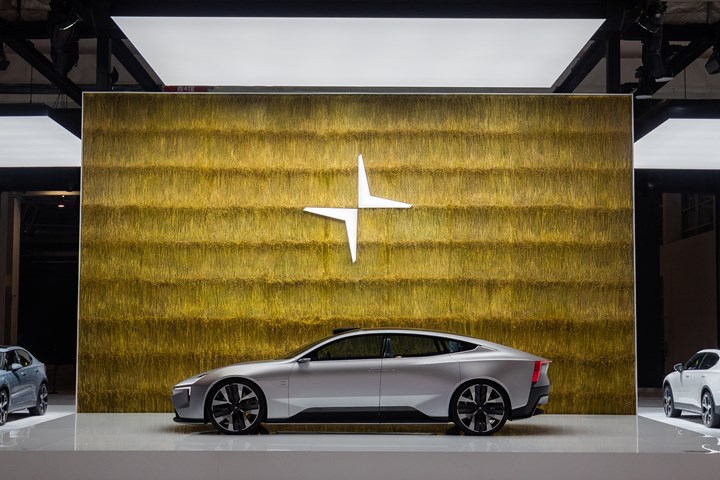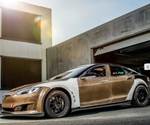Polestar announces production plans for natural composites-intensive BEV
The Precept battery electric vehicle, developed by Volvo’s Polestar brand, is said to feature Bcomp interior and exterior flax fiber composite panels.

Photo Credit: Polestar
Polestar (Göteborg, Sweden), a performance electric vehicle brand of automaker Volvo and Chinese manufacturer Geely Holdings, confirmed in late September that it will put its Precept battery electric vehicle (BEV), announced earlier this year as a concept vehicle meant to forecast the company’s future vision, into series production.
Precept is designed to highlight Polestar’s goals toward digital technology and the use of sustainable materials both in the vehicle’s interior and exterior. Regarding the latter, Polestar has announced a partnership with Bcomp Ltd. (Fribourg, Switzerland) for flax-based composite panels to be featured in Precept’s interior doors, floorboards, dashboard and seatbacks, as well as some exterior components. The car’s interior also is said to feature components manufactured from other sustainable materials such as recycled PET bottles, reclaimed fishing nets and recycled cork vinyl.
With product development underway, Polestar confirms it will produce Precept in China, where a new production facility will be established. According to the company, the aim is to ensure the facility will be climate neutral and one of the most intelligent and connected automotive production facilities in the world.
“Consumers want to see change from this industry — not just dreams. Now, Precept becomes an even stronger statement. We are committed to reducing the environmental impact of our cars and our business. The aim has to be climate neutrality, even though I recognize that is a long-term goal,” says Thomas Ingenlath, Polestar CEO.
This climate-positive narrative was started by Polestar’s original manufacturing facility in Chengdu, where the Polestar 1 electric hybrid vehicle (which features a carbon fiber composite body, among other components) is produced. Inaugurated in 2019, the Polestar Production Centre is said to have become the first LEED Gold-rated automotive production facility in China and runs on 100% renewable electricity.
“China is a home market for Polestar and we recognize the increasingly important drive for greater sustainability here,” says Ingenlath. “With this new factory, we will again raise the bar, aiming to produce the most advanced and premium electric car in China with the lowest carbon footprint.”
Along with the Polestar 1, the company also manufactures the Polestar 2 BEV and has announced plans for a battery electric SUV called Polestar 3.
Related Content
-
Multi-material steel/composite leaf spring targets lightweight, high-volume applications
Rassini International was challenged by Ford Motor Co. to take weight out of the F-150 pickup truck. Rassini responded with a multi-material steel/composite hybrid leaf spring system that can be manufactured at high volumes.
-
Cryo-compressed hydrogen, the best solution for storage and refueling stations?
Cryomotive’s CRYOGAS solution claims the highest storage density, lowest refueling cost and widest operating range without H2 losses while using one-fifth the carbon fiber required in compressed gas tanks.
-
Materials & Processes: Resin matrices for composites
The matrix binds the fiber reinforcement, gives the composite component its shape and determines its surface quality. A composite matrix may be a polymer, ceramic, metal or carbon. Here’s a guide to selection.

.jpg;width=70;height=70;mode=crop)














